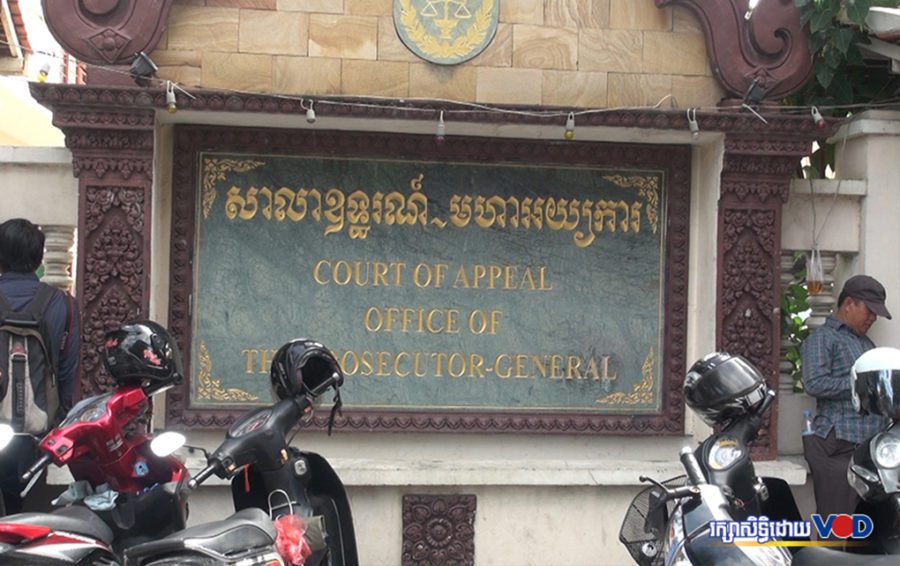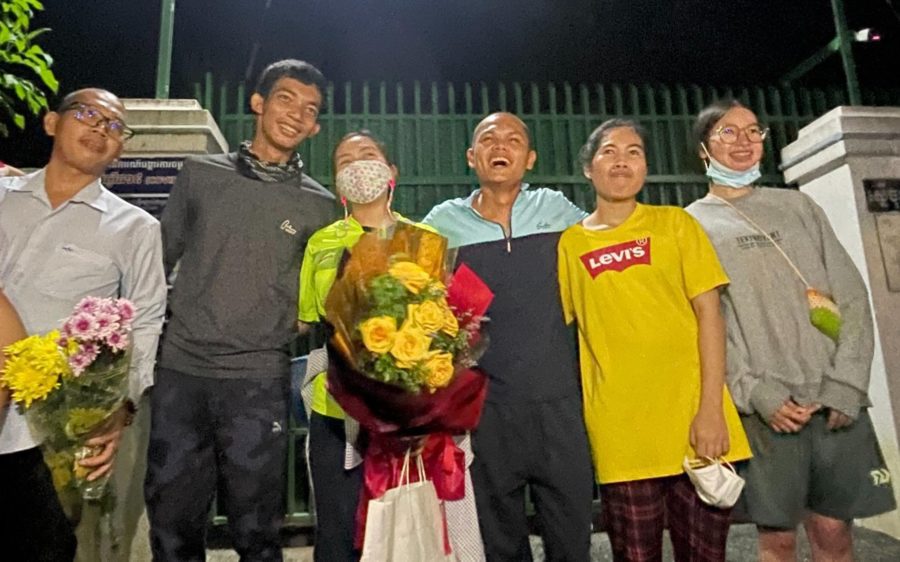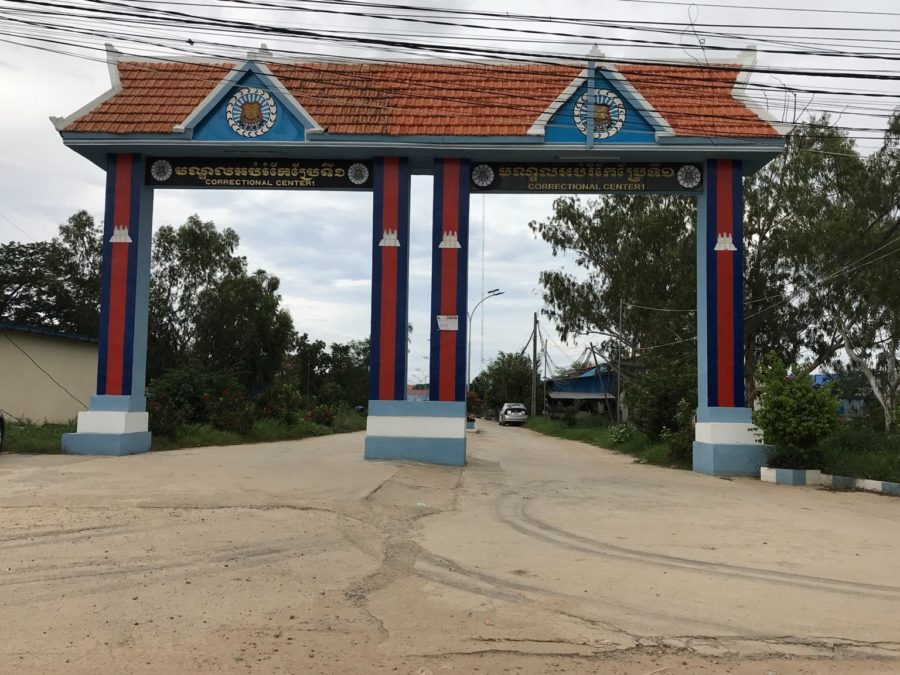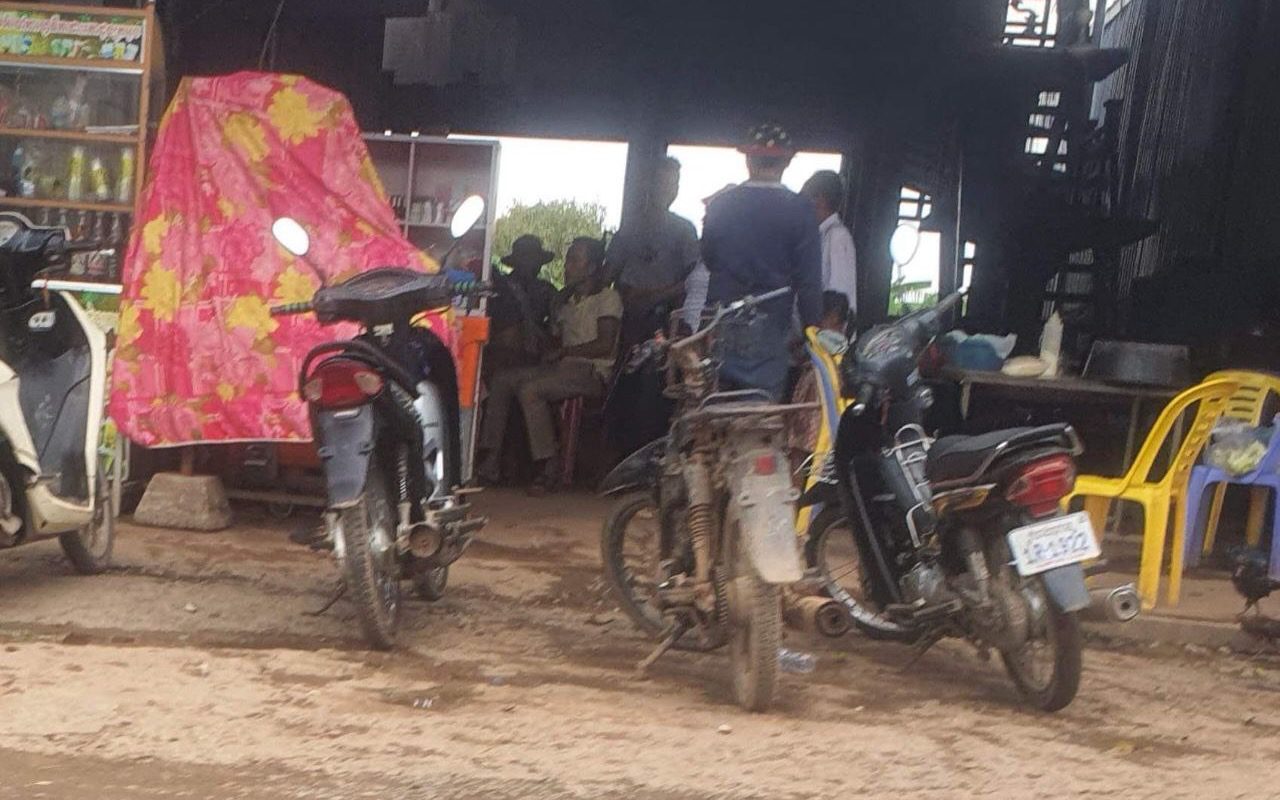An imprisoned man who has maintained his innocence for nearly a decade after being convicted for the murder of his uncle again denied the charge against him during his retrial Thursday morning at the Appeal Court.
The case against Orn Sok, 34, reads like a family drama gone terribly wrong. The Kampong Thom man and two convicted accomplices, Chem Thou and Chea Teang, were found guilty in 2012 for involvement in beating to death a man named Tum Heng, who was the uncle of Sok and had reportedly been accused of practicing sorcery. Thou, who both the defense and prosecution say is the one who actually killed Heng, is also a brother-in-law to Sok, tying the victim and his convicted killers together in a tangled knot of kinship.
After his conviction, Sok was sentenced to 10 years in prison. He has already served nine years and two months of that term but has maintained his innocence throughout that time. The convicted accomplices Thou and Teang were both at large at that time and were convicted in absentia, then each sentenced to 12 years’ imprisonment. The court also issued arrest warrants for them but it’s unclear if they’ve since been found.
This isn’t the first time Sok’s case has been argued in the Appeal Court, and the nature of appeals in Cambodia means that not all of the evidence presented in earlier hearings is discussed again. For that reason, some information about the case — including claims the killers believed Heng was a sorcerer — were not discussed in detail in this latest trial.
Judge Sin Visal, who is presiding over the current proceedings against Sok, said the accused had unsuccessfully appealed his case in July 2015, at which time judges upheld the earlier guilty verdict of the Kampong Thom Provincial Court. From there, Sok appealed to the Supreme Court, which upheld the man’s conviction for murder but disagreed with the lower court’s sentencing.
The Supreme Court decision pushed the case back to the Appeals Court for retrial.
Visal said the Supreme Court claimed that the decision by the lower court and the appeal court was based on insufficient grounds. The Supreme Court judges said the case against Sok had relied on a piece of evidence — a blood-stained hoe — that was found at the defendant’s home, but the provincial court had failed to properly examine the blood to determine if it belonged to the murdered Heng.
The Supreme Court also said the case had leaned on testimony from a witness named Lay Im, who said they had seen Sok standing with hoe in hand. However, other witnesses had named Thou, who is the brother-in-law of Sok, as the real killer.
It’s still unclear how those points will affect Sok’s latest appeal.
Judge Visal said at the trial that Sok’s conviction was based on an accusation that he had depended on Thou to carry out the actual attack on Heng. The judge also said there’s no way to further investigate the bloody hoe, as almost a decade had passed since the time of the killing and the evidence was no longer viable.
Under his latest questioning by judges, Sok denied participation in the beating of his uncle and named Thou as the murderer.
Sok also told the court that he had not known of any accusations against his uncle regarding sorcery. He said he was at home when he heard shouting, and then saw the perpetrators running away.
Visal questioned Sok’s narrative of the events surrounding his uncle’s death.
“Police filed a case saying you hired Chem Thou to beat the victim?” the judge asked.
Sok denied having any involvement with the murder, saying that he had no reason to kill his uncle.
“I have never had arguments with him,” Sok said.
From there, the judge went point-by-point through the case against the defendant, including that of the alleged blood-stained weapon. Sok admitted the hoe belonged to him but denied that it had been used to kill his uncle, saying that he had seen the perpetrators with a stick they’d used to kill Heng.
Judge Visal didn’t seem to accept that, challenging that the investigation of the murder had never found mention of any stick. The judge later pressed that Sok had committed the crime using the hoe, which the accused again denied.
A consulting judge from the court also questioned what he said was Sok’s testimony in a previous trial, in which Sok reportedly said he had tried to give 1,000 Thai baht to Thou after the murder, but that the convicted accomplice did not accept it. However, on Thursday Sok denied he had ever offered Thou any money, disputing what the judge said was his own testimony.
In his concluding statements, Appeal Court prosecutor Nget Sarath said the examination suggested by the Supreme Court of the bloody hoeing tool was not possible. He also said that while Thou is believed to have actually killed the victim, the others had indirectly participated, such as in Sok’s attempted payment to Thou of 1,000 baht, which at that time would have been worth only about $31.
The prosecutor argued that Sok was only about 20 meters from the scene at the time of the killing and could have come to help his uncle. Instead, Sarath claimed, the accused merely watched the crime unfold.
Sarath finished by saying the previous decisions by the lower court and Appeal Court had been correct. He asked the judges to punish the accused according to the law.
Next up was the defense, which countered this by pointing to what lawyer Chan Sothea described as discrepancies in the case and a lack of motive. Sothea said his client had maintained his innocence throughout his entire legal process, adding that three witnesses had also claimed Sok was not involved in the crime.
Sothea also stressed what he characterized as confusion over the murder weapon, both in the claim that the hoe was not used in the crime and that the lower court never conducted forensics on the discovered bloodstains.
“There is no reason that [Sok] had to kill his own older uncle,” Sothea said, asking the judge to drop the charges against the accused. “There is no evidence to inculpate my client, and these points have doubts.”
Presiding judge Visal will announce the verdict on December 23.













